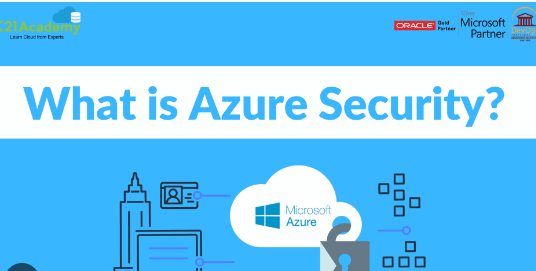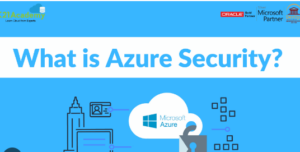In an era defined by digital transformation and cloud computing, ensuring the security of your data and workloads is paramount. Azure, Microsoft’s cloud computing platform, offers a robust suite of security solutions designed to protect your assets and mitigate cyber threats. In this article, we explore the comprehensive security features and best practices offered by Azure, empowering organizations to build and maintain a secure cloud environment.
Azure Security Center: Centralized Security Management
At the heart of Azure’s security offerings lies the Azure Security Center (ASC), a unified security management platform that provides end-to-end visibility and control over your cloud resources. ASC continuously monitors your Azure environment, identifying potential security vulnerabilities, misconfigurations, and threats. Through integrated security recommendations and automated remediation, ASC helps organizations bolster their security posture and adhere to industry best practices. Additionally, ASC offers advanced threat detection capabilities, leveraging machine learning algorithms to detect and respond to suspicious activities in real-time.
Identity and Access Management (IAM) with Azure Active Directory
Identity and Access Management (IAM) is foundational to any comprehensive security strategy, and Azure Active Directory (Azure AD) serves as the cornerstone of IAM in the Azure ecosystem. Azure AD provides centralized identity management, enabling organizations to authenticate and authorize users, devices, and applications accessing their Azure resources. With features such as multi-factor authentication (MFA), conditional access policies, and privileged identity management (PIM), Azure AD helps organizations secure their identities and prevent unauthorized access to sensitive data and resources.
Data Encryption and Compliance with Azure Key Vault and Azure Information Protection
Data encryption is essential for safeguarding sensitive information from unauthorized access and data breaches. Azure offers robust encryption capabilities through Azure Key Vault, a cloud service that enables organizations to securely store and manage cryptographic keys, secrets, and certificates. Additionally, Azure Information Protection (AIP) provides advanced data classification, labeling, and encryption features, allowing organizations to protect their data throughout its lifecycle. By leveraging Azure Key Vault and AIP, organizations can ensure data confidentiality, integrity, and compliance with regulatory requirements.
Network Security with Azure Firewall and Virtual Network
Securing network traffic is critical to protecting cloud workloads and preventing cyber threats. Azure Firewall is a cloud-native firewall service that provides advanced threat protection and network segmentation capabilities for Azure Virtual Networks. By creating network security rules and policies, organizations can control inbound and outbound traffic, inspect and filter packets, and detect and mitigate network-based attacks. Additionally, Azure Virtual Network enables organizations to isolate and secure their Azure resources using private IP addresses, virtual network peering, and network security groups (NSGs), ensuring network confidentiality and integrity.
Threat Detection and Incident Response with Azure Sentinel
In today’s evolving threat landscape, proactive threat detection and incident response are essential for maintaining a secure cloud environment. Azure Sentinel is a cloud-native security information and event management (SIEM) service that empowers organizations to detect, investigate, and respond to cybersecurity threats across their Azure and hybrid environments. By aggregating and analyzing security data from various sources, including Azure Security Center, Azure AD, and third-party solutions, Azure Sentinel provides actionable insights and automated response capabilities, enabling organizations to mitigate security incidents effectively.
Secure Development Practices with Azure DevSecOps
Integrating security into the software development lifecycle is crucial for building secure and resilient applications. Azure DevSecOps combines development, security, and operations practices, enabling organizations to adopt a culture of security throughout the application development process. With services such as Azure DevOps, Azure Pipelines, and Azure Security Center’s integration with GitHub, organizations can automate security testing, vulnerability scanning, and compliance checks, ensuring that security is prioritized from code commit to deployment.
Conclusion
In an increasingly interconnected and digital world, security is not an option; it’s a necessity. Azure’s comprehensive security offerings provide organizations with the tools, capabilities, and best practices needed to safeguard their data, applications, and infrastructure in the cloud. By leveraging Azure Security Center, Azure Active Directory, encryption technologies, network security solutions, threat detection services, and secure development practices, organizations can build and maintain a secure cloud environment that protects against evolving cyber threats and enables digital innovation with confidence. As organizations continue their journey to the cloud, prioritizing security will be essential to unlocking the full potential of Azure and realizing the benefits of cloud computing securely and responsibly.

